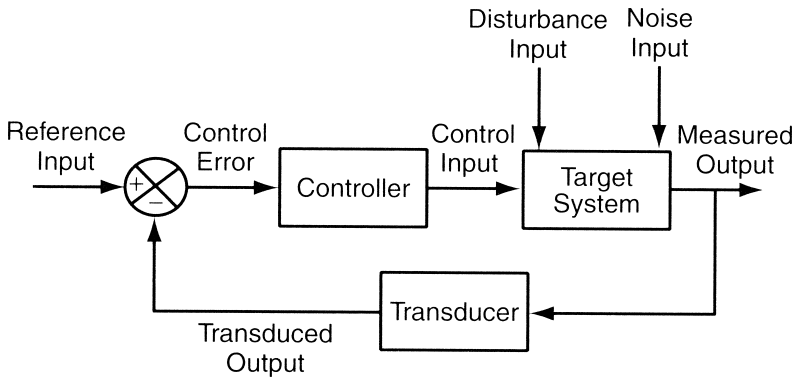SC645 - Intelligent Feedback Control

Instructor
Prof. Leena Vachhani
Semester
Autumn ‘20
Course Difficulty
The course was not very difficult in terms of content. It could be tagged as moderate.
Time Commitment Required
2 hours per week
Grading Policy and Statistics
AA 3
AB 10
BB 10
BC 2
CC 3
CD 2
FF 3
Attendance Policy
No attendance policy
Pre-requisites
MA108, MA106 and SC202 will definitely help in this course. SC202 is however, a soft requirement and basic knowledge of transfer functions is sufficient for this course. With respect to the assignments, basic MATLAB and Simulink knowledge is required (can be learnt during the course as well).
Evaluation Scheme
Presentation (flip classroom) - 25%
MATLAB assignments ~ 35 %
Weekly quizzes (7) ~ 14 %
Main quizzes (3) - 26 %
Topics Covered in the Course
First order and second order models (including delays), PID Control, PID tuning techniques, integration wind up and other drawbacks of simple PID, feedback-feedforward controller, cascade control, decoupling, multivariate control, minimum and non minimum phase systems, relative gain array and condition number analysis, decentralized PD control
Teaching Style
The first half of the course involved pre-recorded lectures and were followed by live classes. The second half comprised of a flip classroom approach and groups were told to pre-record lectures and set tutorials and small MATLAB based assignments. The groups were graded for the presentation while the tasks they made were primarily for practice.
Tutorials/Assignments/Projects
The assignments were all on Simulink and MATLAB and once you have a hang of it (basic MATLAB tutorials) they become very easy to solve.
The presentation was also easy to do since they were to be done in groups of 5-6 and divide and conquer worked well. It is advised to thoroughly read about the topic assigned as you might have to answer the questions asked in class.
Feedback on Exams
There were weekly short quizzes on Moodle that carried 2 marks each for the first half of the semester. They were straightforward and more often than not had questions based on block diagrams and associated transfer functions. The quiz would be open for around 4 days and could be given in any 20 minute slot.
The large quizzes would have 2-3 hours time on the clock and would be lengthy and subjective. We had 3 or 4 such quizzes and again, these could be given during any time slot within a seven to ten day period. The questions were often phrased in a tricky way but were limited to concepts covered in class.
Motivation for taking this course
I heard about the course from a friend. The course was earlier under the code SC620. Since I was doing a Syscon minor, I thought that it would be a good idea to explore intelligent systems (let’s all pretend that my motivation for taking the course had nothing to do with the fact that my friends were taking it as well).
Course Highlights
The course provides a good overview of control techniques most commonly used in the industry, not just in theory, but with sufficient emphasis on engineering details as well. Naturally, the course is less theoretically rigorous and more practical. The course revolves around PID control and how it can be applied to different systems effectively. The later part of the course includes some of the recent techniques being used for industrial control.
Course Importance
The course is important for industrial control and process control. It is also helpful when we do ME311 since a lot of topics overlap.
How strongly would I recommend this course?
I would recommend people to take this course if you want to explore control theory and its applications in the industry. Since the course revolves around PID control, it finds several applications elsewhere too (robotics, aerospace, etc.)
When to take this course?
I took the course in my fifth semester. For people doing a syscon minor, it is recommended to take the course after SC202 and for people in mech, it is recommended to take it during or after the fifth semester. As I mentioned earlier, a lot of concepts from ME311 are common to SC645 (the initial part).
Going Forward
Several courses like process control and advanced process control - both from the chemical department can be a good follow up to this course.
References Used
- Friedland, Bernard - Control System Design - An Introduction to State-Space Methods-Dover Publications (1986)
- K. J. Astrom, T. Hagglund - Advanced PID Control-ISA Instrumentation, Systems and Automation Society (2006)
Other Remarks
None
Interesting relevant links
https://www.youtube.com/channel/UCq0imsn84ShAe9PBOFnoIrg (Brian Douglas Tech Talks)
SC 645 Review By: Bhavini Jeloka